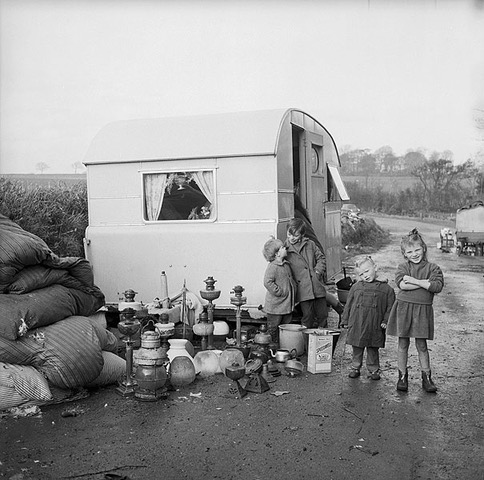The issue of Elective Home Education (EHE), amongst teachers and parents is one that elicits strong opinions on both sides; parents choose EHE as they feel their culture, language and heritage is unrepresented in schools, their children vulnerable to bullying and discrimination and that, if their children haven’t learned the essentials in primary school, they won’t do so in secondary (‘big’) school. Secondary schooling seems to offer little that will support and strengthen Romani and Traveller identities, life skills, employment opportunities (as they will always be ‘Gypsies’) and only detach their children from the community, through assimilation and erosion of their identity. Other Romani and Traveller parents are clear that ‘home’ schooling will deprive their children of opportunities for social development, inter-action, learning complex and increasingly necessary skills in the age of information technology. These parents are adamant that their children will go to secondary school and gain these skills, making use of the opportunities that are available to them for successful and increasingly engaged (beyond the Romani and Traveller communities) lives.
Teachers are also somewhat divided in their opinions regarding Romani parent’s choosing to ‘opt out’ from secondary education; some feel very much that it is the parent’s choice, not the children’s choice that is being prioritised. Others regard parents in Romani and Traveller communities as not being fully committed to schooling as a form of education, based on parents’ own negative experiences of secondary schools when they were young (suggesting strongly that teachers recognise a past where ‘Gypsy’ teenagers and young people were mistreated, misunderstood and marginalised in state education). A few teachers suggest that Romani and Traveller parents lack the skills and knowledge to effectively ‘home’ school their children, as they do not have the necessary competences.
There are teachers who are clear that the education curriculum and the school system in general does not deal with children from the Romani and Traveller communities (or other minority ethnic communities generally) well, lacking curriculum elements that recognise and celebrate diversity in anything but the vaguest terms. Teachers’ own skills and knowledge regarding Romani and Traveller history, languages and cultures are very much missing and this group of teachers would like to engage more deeply with those areas, through training and professional development.
This report investigates, through a series of interviews and surveys the different opinions and experiences of teachers, education support staff and parents from Roman and Traveller communities, in their approaches and attitudes to EHE, concluding that the issue may be much less ‘black-and-white’ than education managers and providers think and that there are solid reasons why parents take up EHE the can be addressed earlier and more thoroughly by teachers and educators, to encourage a longer term engagement with schooling by Romani and Traveller communities. Changes are needed at policy levels too, in order to reflect the aspirations of Welsh legislators and government (in the Well-being of Future Generations Act 2015, for example), for the protection and nurturing of minority ethnic communities in Wales and the recognition that Romani and Traveller people are an historic part of Welsh society for many hundreds of years, deserving of recognition and respect, not a ‘problem’ to be subsumed through mass education.
Isaac Blake, Director of the Romani Cultural and Arts Company said:
‘Gypsy, Roma and Traveller children and young people deserve the best education service. They deserve an education service which wraps around them, nurturing their personal talents and cultural identity. I hope that this report generates more questions and therefore answers about the over-representation of Gypsies, Roma and Traveller children being home educated.’
Please download the pdf here: (2018-07-20-EHEReport)

